THREE SUITORS ONE HUSBAND
PLAYWRIGHT: GUILLAUME OYONO -MBIA
SETTING: MVOUTESI IN CAMEROON
YEAR: 1960s
FORM FIVE SELECTION CLICK HERE
DOWNLOAD FORM FIVE JOIN INSTRUCTION FOR HIGH SCHOOL HERE
DOWNLOAD PDF JOING INSTRUCTION FOR TEACHERS COLLEGES 2023
INTRODUCTION
Three suitors one husband appears to be a comedy play
because it is witty or humorous. I.e. it may make you
laugh.
The Title “Three suitors one husband” is nothing but
three men who want to marry a girl called Juliette,
whereby two of them have already paid the bride price to
marry her (Julliete), and one of them is unknown to
Julliette’s family. It is only Julliette who knows him, for
they are both at school. He is called Oko. He is the only
man whom Julliette wants to be her husband. Both three
men (suitors) are competing to marry Julliete but they
differ in terms of economic status. For instance Mbia,
who is senior Civil Servant, is wealthier than others. Ndi
(a peasant) is at least richer than Oko (Julliette’s choice).
Mbia pays 200,000 Francs as the bride price for
marrying Julliette; Ndi pays 100,000 Francs which is
smaller than that of Mbia. Julliette’s family wants Mbia
to marry her (Julliette) for he is wealthier than others
and he paid 200,000/= Francs which is greater than the
money paid by Ndi. Oko pays nothing; he is very poor he
is just a student like Juliette.
All these issues of paying the bride price take place
while Juliette is not at home; therefore she is not
informed that she is going to marry. This is because
according to their traditions, it is parents who decide
whether their daughter is to be married or not.
When Julliette comes back from school she is
wondering to hear from her parents that they want her to
marry and the money for bride price has already been
paid. And two suitors are waiting for her.
Julliette protests because she is in need of continuing
with further studies before marrying. Apart from that she
is in love with her fellow student called Oko. She loves
him very much.
Having discovered that it is difficult to convince her
parents not to marry either Mbia or Ndi, she decides to
steal the money (300,000 Francs) paid by Mbia and Ndi
and gives all of it to her choice (Oko). Oko is afraid but
Julliette convinces him to take them and then he will
have to pay them to her parents as the bride price so
that he will be considered to have paid the greater
amount than all the suitors. Before payment Juliette
announces that she is ready to be married but she will
only be married by someone who will pay 300,000/=
Francs, knowing that Oko has such amount. Her parents
try to find the men who will pay such amount but they
fail. As the result Oko arrives and pays such amount.
Therefore marriage between Juliette and Oko takes
place. Juliette appears to be the winner, for she
succeeds to marry the man of her choice (Oko)
ABOUT THE BOOK
The play is set in Mvoutessi village in the southern part
of Eastern Cameroon, a typical Bulu village, built along
the road. The book is all about cultural conflict existing
between traditional culture represented by the villagers
against the western culture represented by young people
like Juliette, Oko, and kouma. The play begins by
showing Juliette, a daughter of the village, is about to
return home from her secondary school with Oko, her
father, Atangana and all the relatives expect Juliette to
comply with these. The resulting clash symbolizes the
meeting of two conflicting cultures. The play is divided
into acts as summarized here below
ACT ONE
RELATIVES AWAIT JULIETTE EAGERLY IN THE VILLAGE
It is quite afternoon in Mvoutessi Village. The relatives
are seen gathering at Atangaa’s house expecting Juliette
to arrive at any time from her boarding school at
Libamba. Atangana is seen making a basket and
Abessolo is busy sculpting an ebony figurine while
Oyono and Ondua are playing a game of “Songho”. All
these men are seen drinking palm wine. The women
such as Matalina and Bella do not drink; instead they are
busy cracking peanuts for the meal. Later, Atangana is
shown complaining about his wife’s behavior of coming
late back to the village from the bush as he says to
Ondua, his young brother: “You see; Ondua? The clock
itself says we’re half-way through the afternoon already!
And that wife of mine’s still working in the bush! Will that
woman ever understood that she must always come back
to the village before midday?”
THE COMING OF JULIETTE
Juliette is warmly welcome back to the village by the
relatives. She embraces the members in a Bulu way as
the tradition demands (Consider African tradition).
A little while later, Juliette is shocked when she is told
about marriage arrangements done by her family in her
favor. She is told that, Ndi, a young farmer came to see
them, five weeks ago and said that he wanted to marry
her and on top of that, he has already paid them, one
hundred thousand francs as dowry. Juliette is more
shocked when her father informs her that they were also
expecting another suitor, a great civil servant ( Mbia) that
very afternoon who also want to marry her and that, If
Mbia pays a larger bride price than Ndi , he (Mbia) is
going to marry Juliette. This question annoys more
Juliette as she is seen shouting at her father: What? Am I
for sale? Are you trying to give me to the highest bidder?
Why can’t you ask my opinion about my own marriage?
This causes a serious family conflict between Juliette
and her relatives, all the relatives know is that Juliette
has now been corrupted by the secondary school
education introduced by the French in Cameroon.
MAKRITA IS COMING BACK FROM THE BUSH
Makrita (Juliette’s mother) comes back from the bush
with a basket containing food crops such as cassava,
banana, and sugar cane. As soon as Juliette sees her
mother, she goes to embrace her. Atangana blames his
wife (Makrita) that she is the one who teaches Juliette
such a disgraceful behavior of disobedience.
THE ARRIVAL OF MBIA
Oyono informs people about the coming of great man
(Mbia). He wears a terylene suit, dark glasses and an
impressive collection of medals on his chest that make
him look a real civil servant. People are confused and
excited. Atangana orders Oyono to go and beat the drum
so as to tell everybody in the village to come to his
house that very afternoon and among other things, he
(Atananga) wants all the people to go to the roof to give
Mbia a big welcome.
ACT TWO
MBIA INTRODUCED HIMSELF BEFORE THE VILLAGERS
Mbia is invited in the village; he comes with his driver
called Engulu. After sitting in a big armchair, he is asked
to introduce himself before the villagers and tell them
what brought with him there. Mbia starts introducing
himself as a very important civil servant from
Sangmelima who works in a very large office. He tells
peoples that, because of his exceptional abilities, he has
been awarded many medals. He then continues telling
people the reason of his visit to the village that he seeks
the honor to become a member of Atangana’s great
family through marriage, he asks them to give him
Juliette, Among other things, Mbia orders his driver
(Engulu) to offer a couple of drinks to the villagers who
start drinking without bothering about glasses.
MBIA IS ASKED TO TELL PEOPLE HIS GENEALOGY
Abessolo tells Mbia that before answering his request to
marry their daughter of the village (Juliette), he must tell
the villagers his genealogy (the study of family history,
including the study of which the ancestors of a particular
person were). Mbia introduces himself that he belongs
to the tribe Esse. On his mother’s side he is a
descendant of the Mbidambanes. His mother’s (Mbia
grandmother) was a Yembong. There is a general wail
(weep) of distress among the villagers when the tribe
Yembong is mentioned. Mbia stop in surprise, and looks
questioningly at Abessolo who is more upset than any of
the others, the grandmother of Juliette’s grandfather
(Abessolo’s grandmother) was also a Yembong.
Mbia: “Impossible marriage? And what about my beer?
Abessolo: “No marriage…. No marriage! Return him his
beer! He is related to Juliette! No marriage!”
Mbia: “Engulu! Take back the beer! We are leaving!”
The villagers rush to the case,and helping themselves
with more bottles while Engulu is unsuccessifully trying
to take them away.
THE INFLUENCE OF THE VILLAGE HEADMAN
Mbaraga, the village headman convinces the villagers to
accept Mbia to have their daughter Juliette. He claims
that the great men should always deserve special
treatment and since Mbia is the civil servant, he
deserves better treatment to marry Juliette. In the book,
Mbarga is show flattering Mbia.
Mbarga: “listen all of you! I’m the headman of this village!
Mbia; our visitor has come all the way from Sangimilima
because he wants to marry our daughter Juliette. Well…. I
know that some people here think he related to Juliette, so
there should be no marriage…..but what? Should we be
foolish enough to turn down a civil servant like Mbia for
such reasons? Don’t great men always deserve special
treatment?
Villagers: “They do!”
Now all the people including Abessolo are convinced
and support Mbarga that Mbia should marry Juliette.
THE PAYMENT OF THE BRIDE PRICE
Mbia pays the bride price (200,000 Franc), he gives it to
Mbarga who counts it with Abessolo then gives it to
Atangana. In this act the playwright discloses that Mbia
has got eight wives, therefore if he marries Juliette she
will be the ninth wife. In addition to that the playwright
shows that, none of these wives of Mbia went to
secondary school like Juliette, so if Mbia succeed to
marry Juliette, she is highly expected to rule the house.
After Mbia had paid the bride price he tells people that
he has to attend a cocktail party at the secretary of the
state’s private residence that evening.
JULIETTE QUERRLES WITH THE FAMILY
Juliette is not happy with what her family has done to
her particularly on the question of marriage since she
has not been consulted. She sticks to her stand that she
loves her fiancé Oko instead of the two suitors (ndi and
Mbia). This causes a serious conflict between Juliette
and Oyono since he consider that Juliette does not love
him because the money paid for Juliette’s bride price
could be paid for Oyono to pay for his future wife.
Therefore Juliette’s refusal to marry the civil servant
simply means that Oyono misses the wife.
EATING MANNER
People go to eat inside, the act discloses that,
traditionally, children are supposed to observe eating
manners. When eating, elders are heard scolding the
children who don’t eat properly.
JULIETTE STEALS THE BRIDE PRICE AND GIVES IT TO
OKO
Juliette meets to Oko who was coming to her home
place, she informs him of the disaster which had
befallen her. At the beginning, Oko seems not to
understand the matter very well therefore she supports
Juliette to get married but after being aware that Juliette
‘s family has chosen suitors for her , he becomes very
upset since he loves Juliette so much that he is ready to
marry her. Juliette suggests going inside the house so
as to steal the bride price already paid by Ndi and Mbia.
She runs to the main house promising Oko to bring him
three hundred thousand francs. Kouma also is shown
coming with his old motorcycle and talks to Oko.
Meanwhile later, Julliette comes out of the main house
with an old briefcase. Oko becomes happy after realizing
the money meant to facilitate their marriage. Kouma forces Oko on the carrier of the motorcycle telling him: “Come on, sit there, and you’ll soon be a wealthy man! Marriage is an expensive business nowadays! Better take advantage of your money, and get married!”
ACT THREE
Ndi arrive at Atangana’s house the same day at night. He is told that Julliette is no longer interested to marry him since she is now crazy about Mbia. After hearing that, Ndi wants his money back so that he could go back to Awae, his home village.
Atangana goes to the main house to take the money to pay back Ndi but he discovers both the money and briefcase missing. When the villagers understand what is going on, Mbarga is given a task to convince him (Ndi) to add another 100,000 franc and take Juliette right away.
Ndi is ready to marry Juliette but when he is told to add another sum of money, he refuses to add the money and threatens to bring them police and he goes away. People are very scared but Mbarga advises them to try the civil servant who left him drinking Ark in his house.
MBIA THREATENS THE VILLAGERS
People decide to follow Mbia at Mbarga’s house so as to
convince him to add one hundred thousand francs so as
to take Juliette with him right away. They badly need the
money to refund Ndi. Unfortunately for them, Mbia is not
ready to add the money and threatens to bring them ten
police Commissioners the following day. In the book,
Mbia is shown ordering Engulu, his servant. “Take the
name of this village in your note-book. Write that the
people of this village have no respect for important civil
servants like me. The roars leading to the Mvoutessi are
poorly kept, and that the houses have not been while
wished in expectation of the honour of my visit. The
women of this village are illegally distilling Arki” After
having finished this drama, he goes to the road with his
driver, leaving the villagers confused.
ACT FOUR
The act begins showing the same place at night; there is
a stage which is now lit by the witch-doctor’s red fire. All
the villagers, male and female, stand in circle behind
Sangatiti, the witch-doctor and his assistant who are
seen dancing. People decide to call the witch doctor to
help them find out who stole the money. The witchdoctor
demand a lot of things such as rams, ducks and
cocks before the solving the problem. He fools the
villagers by telling them a series of lies. Then the
villagers became aware that he was fooling them, their
eyes were now open, they angrily rush towards him and
his assistant and they drive them out shouting at him: “
you liar…you scoundrel…you robber …etc”.
ACT FIVE
The act begins showing that it is the next day, a
particularly sunny afternoon. The men of the village are
gathered in front of Atangana’s main house. They are
shown to be disappointment by Juliette’s disobedience
as she is not ready to get married to either Ndi or Mbia.
They say that the girl (Juliette) is corrupted by secondary
school. It is then suggested by the people that Atangana
should take Juliette to Younde (the capital city of
Cameroon) and visit all the offices so that she could
attract the other suitors in the city. They keep on
convincing him (Atangana) that if any one agrees to pay
him three thousand francs at once, he should give him
Juliette right away. After hearing this comment, Juliette
now make up her mind and accept to marry any man
who would pay three hundred thousand francs at once,
she says
“I’ll marry the first man who pays you three hundred
thousand francs at once!.. but you’ll have to settle the
marriage on the sport, without asking for any terylene
suits, no rams, no pigs and no colanuts!.”
Juliette had high expectation that person would be Oko
since he is expected to arrive there at any time.
Unfortunately for her, the third suitor (Tchetgen) appears
and people convince him to pay three hundred thousand
francs claiming that Juliette is very educated. This is
proved when Mbarga informs Tchetgen:“ she can also
speak English, espana, espanol, Spanish, all these
languages they teach at Dibamba!”. However, they fail to
come to terms sinceTchetgen is ready to pay only two
hundred thousand francs as dowry, therefore Tchetgen
fail to marry Juliette.
THE COMING OF OKO
Oko is dressed like a great man smoking a long pipe. He
is accompanied by Kouma and six musicians. Oko is
ready to marry Juliette but he wants the girl be asked her
opinion since she is the one who is getting married
therefore it would be better for her to choose her own
husband. The elders are strongly opposed to this
suggestion, they fear Juliette could start her nonsense
about marrying her school boy. Mbarga is shown telling
Kouma: “ah! Kouma! Can’t you explain to Mr Dr of palmtree
leaves…er…doctor of Spanish and Espanol that
women don’t speak here in Mvoutessi ! We’ve decide to
give him Juliette! What has she got to do with it?
After that Kouma points at the floor and Juliette moves
closer to them, pretending to look at them thoughtfully.
Atangana timidly points at the leaf representing Oko
while addressing the most eloquent winks to his
daughter. Finally, Juliette chooses the leaf representing
Oko, the bride price is paid and the marriage is settled.
Atangana is heard telling her daughter: “you know, my
child, I might as well have given you for nothing…….to that
Lecrerc schoolboy of yours.”
THEMES (THEMATIC ANALYSIS)
POSITION/ROLE OF WOMEN: The so called role of
women is played by a girl (Juliette), the way she is
courageous. She tries to protest against oppressive
traditional customs of their society. For instance she
is forced to marry by men whom she doesn’t love but
she tries to protest although it is against their
tradition. This makes her achieve her goal. For
instance she achieves to marry Oko, a boy whom she
loved so much. From the story, women are
positioned as follows
1.
Firstly they are traditionally oppressed. For instance
when Juliette arrives at home, she becomes shocked
for she is told that they want her to marry, the bride
price has been already paid for her when she was at
school and she was not informed. For stance
Obessolo says “Consult a woman about her
marriage?” this shows that a woman is undermined.
I.e. not involved in decision making.
Women are also denied from being educated.
Juliette wants to continue with studies but her
parents thinks that marriage is much important than
further education.
Women are used as the source of income. For
instance the whole Juliette’s family and their
neighbors want Julliette to marry Mbia, who seems
to be richer than Ndi so as to improve their life
standards. They force Juliette to marry him just
because he is very rich while Juliette is not in love
with him.
2. Conflicts.
The first conflict takes place when the money paid for
bride price is stolen by Juliette while Ndi is in need of his
money (100,000/= Francs) to be refunded back to him.
They try to deceive Ndi that he should pay 200,000
Francs more so that they can pay them back to Mbia and
he will marry their daughter (Julliette). Ndi refuses and
threatens to call the Police from Zoetele. Then they go
back to Mbia, Mbia refuses and threatens to call ten
Police. Hence conflict takes place. There is also the
conflict between Juliette against her family over the
issue of marriage. That is Juliette wants marry by Oko, a
man who is not preferred by her family because he is
poor. her parents want her to marry a reach man (Mbia).
Juliette is not ready to be married by Mbia. Hence
conflict.
The causes of conflicts from the play
In a particular society, women are not allowed to
choose a man to marry. That’s why Juliette’s parents
chose Mbia and Ndi for their daughter. But when
Juliette comes back from school she goes against
such traditions. This is because she is conscious that
it is undermining her. It does not give her a chance
for decision making. Hence conflict takes place.
This is also one amongst the causes of conflicts. For
instance in order to solve the issue of marriage
between Juliette and her suitors, Mbarga suggests
that a witchdoctor (Sanga Titi) will solve such a
problem but late on, Sanga Titi fails to solve. As the
result they chase him away having discovered that he
is a liar.
Juliette seems not to love Mbia and Ndi. She is in
love with Oko. That’s why she hinders her parents’
plans to marry Mbia. This leads into conflict between
her (Juliette) against her parents.
POVERTY
Juliette’s family seems to be poor that’s why they accept
money from the two suitors and they are ready to offer
their daughter to any of them especially the one who
pays a lot of money for bride price. For instance they
suggest that Mbia should marry Juliette because he had
paid 200,000 Francs which is greater than 100,000
Francs paid by Ndi. They also prefer Mbia, for he is a civil
servant, therefore he will save them from financial
problems.
IGNORANCE
The majority (Villagers) including Juliette’s parents are
ignorant. For instance they fail to discover that, Mbia is
rich but a womanizer, hypocrite, deceitful and corrupt.
For instance having paid 200,000 Francs he deceives
people that he has to leave since he is going to attend a
cock tail party while he was going to have a drink (arki).
But still they want him to marry Juliette. Apart from that
he is a polygamist, who has eight wives but still
Julliette’s parents want Julliette to be his ninth wife.
CONSCIOUSNESS/AWARENESS
Julliette is aware that her parents are ignorant that’s why
she tries to make her own decisions For instance she
succeeds to marry her choice (Oko), her parents wanted
her to marry Mbia, who is deceitful and hypocrite. Also
Kouma is aware that Sanga Titi is a liar. He tries to
expose to the villagers that he is a liar and as the result
they chase him away.
This is an act of making people believe something which
is not true. Mbia is deceitful and a liar, as he tries to
make people believe something that is not true, for
instance after paying 200,000/- Francs he deceives
people by saying “I am going to attend a cocktail party at
the secretary of states private residence this evening” as
the result he goes to drink Arki (gongo). Also when
Juliette’s parents follow him at the place where he was
drinking he threatens to call the police so that they can
arrest them. We also see Julliette deceiving people that
she will only marry a man who pays 300,000/-Francs
while she has stolen that money and handles it to Oko.
And Oko eventually deceives people that the money
belongs to him. People believe and accept marriage
between Julliete and Oko after being deceived.
Therefore deceit is what makes Julliette achieves her
goals.
This is the situation whereby a character fails to fulfill a
promise or something expected by another character.
The villagers including Juliette’s family are disappointed
because of their ignorance. For instance they were
expecting that Juliette would marry Mbia and they would
enjoy life as he is very rich but Juliette refuses to marry
him. Hence disappointment takes place for, Juliette’s
failure to fulfill marriage between her and Mbia. Also
both Mbia and Ndi are disappointed by Juliette because
they were expecting to be Juliette’s husband but in the
end Juliette decides/achieves to marry Oko.
IGNORANCE
The term ignorance simply means the situation in which
people lack knowledge or awareness about a specific
subject or fact in their society in particular and around
other societies at large. For example in this book, the
playwright shows how people in Mvoutessi society, most
of the female children are despised, segregated and
abused to the maximum, they are not allowed to go to
school, they are just regarded as burdens to the society.
This is clearly evidenced in the book when Abessolo is
heard shouting: “That proves what I always say: never
send your daughters to secondary school! Look at
Matalina who never went to secondary school! Doesn’t
she always speak like a sensible and obedient girl?” The
question of ignorance has been one of the serious
barriers towards realizing sustainable development. The
society with ignorant people like Mbarga, Abessolo and
Bella experience no form of development. Ignorance is
an enemy of the people in particular and development at
large; therefore it should be attacked with all our effort.
POLYGAMY
Polygamy refers to the tendency in which a person tends
to have more than one wife at the same time. This
practice has been a common play in Africa, particularly
in rural communities. In this book, polygamy is seen as
measure of virility or sign of prestige among men. For
example, in this play, the playwright shows how
Mvoutessi villagers are polygamous, a good example of
this include deputy of the secretary of the state, Mbarga
and Mbia just to mention a few. Mbia is also shown in
the book to have eight wives and if he marries Juliette,
she will be the ninth wife. The practice of polygamy is
very dangerous particularly in the contemporary world
since it is a possible way of spreading HIV/AIDS. When a
man has many wives, it is possible that some of the
wives will not be faithful in marriage. This is because; it
is difficult for a single man to satisfy the needs of all
women sexually, so it is advised to do away with this
marriage practice if we are to be HIV/AIDS free.
Conservatism refers to the tendency of the people to
resist great or sudden changes due to the reason that
they prefer traditional style and values. In this book for
instance, Bella and Abessolo (Juliette’s grandparents)
are good example of a conservative persons. Abessolo
supports the traditional values and primitive custom that
women should be inferior before men. On top of that, he
also supports the outdated custom of wife beating;
Apart from Abessolo, Bella is also portrayed in this book
as conservative. She still keeps the traditional custom of
choosing girls their future husbands. Conservatism
plays a very significant role to undermine social welfare
as whole and gender equality in particular. It is rational
that people should abandon such a poor belief so as to
ensure development in all spheres of life.
SUPERSTITION
This refers to the widely held but irrational (not logical or
reasonable) belief in supernatural influences, especially
as bringing good or bad luck. This practice has become
a common game in most of the third world countries
particularly the African countries. For example, in this
play, the playwright shows that when Atangana and his
fellow elders realize that the bride price paid by the two
suitors (Ndi and Mbia) is missing, they decide to all
Sangatiti, the witch doctor to help them find out who
stole their money. This is well evidenced in the play
when Mbarga, the village headman is heard convincing
people:“We could once discover the unknown!…shouldn’t
we now send for a witch-doctor?… yes, we need a witchdoctor1
you know Sangatiti, the great witch-doctor, is
somewhere near Mfouladja. Let’s send Kouma there to
ask him to come.”Superstition can lead to serious
damages in the society such as killings, brutality and
conflicts among the societal members. The killings of
albinos and old women with red eyes in Tanzania can be
a good example of superstitious beliefs. Having
considered the side effects of this practice, the root
causes of the belief should be uprooted in the society for
the good of the entire nation.
AWARENESS
Awareness can simply be defined as knowledge that
someone has about something good or bad that is
existing within the society together with its advantages.
In this play, the playwright shows that young people like
Juliette, Oko and Kouma are aware of the various things
in their society as a result of formal education they had
acquired. Awareness acts as a pillar of the social
development. People with awareness tend to be creative,
curious and critical in many things concerning social
welfare as well as aware of the various things hindering
social development.
ILLUSION
Illusion refers to the state in which a person develops
false beliefs or ideas which may not come into reality.
Illusion is common in many African countries. For
example in this play, illusion is shown among the
villagers of Mvoutessi. For example Matalina, Ondua’s
daughter is having illusion that she will one day get
married to an important person like Mbia who will take
her out of the village. She also expects that she will live a
very luxurious life after getting married. The Mvoutessi
villagers are also portrayed to be full of illusion such that
they have very high expectations of getting so many
things after Juliette is married to a greater man, Mbia
that is the reason why they despise Oko and Ndi. Illusion
can also be proved when Matalina is heard commenting:
“How lucky! My cousin was definitely born with a star on
her forehead, fancy marrying a wealthy man! She’ll soon
have lots of dresses, blonde wigs, she’ll soon have
everything!.”
NEPOTISM (FAVOURITISM)
This refers to the act whereby people tend to serve the
other people not due to their academic qualification but
because they are the relatives or because they know
them. This is another form of corruption and is so vivid
in the government offices. The government officials
serve the people that they know and sometimes cannot
take any measures against such people in case they
commit an illegal act (crime). For example in the play,
Mbarga is never touched by the police although his wife
makes and sells Arki since he is the village headman but
other common people like Ondua are always caught and
beaten by the police. Apart from that, also common
villagers get problems in obtaining gun permits just
because they are not known by anybody in those offices
that is why they expect that mbia canassist them. This is
well proved in this play when Abessolo is heard advising
Atangana.
ALCOHOLISM
This refers to the situation of having drunk so much
alcohol such that it is impossible to think or speak early
for example in this play the writer has used several
characters such as Ondua, Mbarga and Mbia who are
drunkards to represent this theme to us. Most of
Mvoutessi men are drunkards such that they spend
most of their time only drinking leaving all the economic
activities in the hands of their wives. For example at the
beginning of this play, Oyono and Ondua are represented
playing a game of “Songho” and making frequent use of
a calabash of palm wine set beside them. Oyono is also
seen now and then going to pour some wine for his
father (Atangana) and grandfather (Abessolo) while the
women such as Matalinaand Bella do not drink; instead
they are busy cracking peanuts. The writer continues to
describe Ondua as the best of all drunkards in the
village. For example in the book, Bella is heard telling
Matalina when going back home: “yes, my child! Go and
join your mother Monica! She must be feeling lonely in the
house, with your father still drinking at the headman’s
house
AFRICAN CULTURE
This refers to the customs and beliefs, art, way of life
and social organization of a particular society or group.
The playwright has used Mvoutessi village to represent
the African culture found in many other African
societies. Some of the predominant African culture
depicted in the book is the following:
Food taboos: Mvoutessi villagers have their own
food taboos. For example women and young men
are not allowed to eat vipers but young men eat the
vipers by special permission. For example in this
book Mbarga is shown complaining of the young
men Belinga and Owono of eating viper without
elder’s permission.
1.
Religion: Most of the villagers in this play still keep
many traditional beliefs. They believe in their gods
and spirits such as owls and chimpanzees. They
also strongly believe in the power of their dead
ancestors who watch over the society from the
spiritual world.
2.
Marriage: Villagers have their own tradition on the
matters of concerning marriage. For example, girls
are not allowed to fall in love without the permission
3.
CHARACTERIZATION
1. JULIETTE
She is the young girl, who goes against an oppressive
tradition belief. She is educated and passed her exams
at Dibamba Secondary School. She is the daughter of
Atangana and so the granddaughter of Obessolo. She is
the one who has three suitors including Mbia, Ndi and
Oko. She achieves to marry the man of her choice (Oko)
despite the obstacles from her parents. She is also
deceitful i.e. she steals the money paid by Mbia and Ndi
as the bride price to marry her and takes it to Kouma so
that they can give Oko so much that Oko can pay for her
as the bride price. She plays the so called roles of
women, for she achieved to stand in front of people and
say something. She also achieves to marry the man of
her choice (Oko).
2. Oko
Like Juliette, he is a student. He succeeds to marry
Juliette although Juliette’s family did not accept him
because he is poor and just a student like Juliette. They
later on accept him because Juliette stole the money
paid by Mbia and Ndi from her father (Atangana) and
gives him to pay as the bride price (The total sum of
300,000/= Francs). He is also against oppressive
tradition which hinders development.
3. Mbia
He is a Civil servant, the second suitor to Juliette. He is
the most preferable suitor to all other suitors by
Juliette’s parents. This is because he is wealthier than
others. Despite his richness Julliette rejects her. He pays
200,000/- Francs as the bride price to marry Juliette. He
is deceitful, a liar and corrupt. For instance after paying
the bride price he says that he is going to attend a
cocktail party while he is going to drink Arki (gongo). He
is a polygamist, for he has eight wives. Therefore he
wants Juliette to be his ninth wife.
4. Kouma
He is Julliette’s cousin, who is educated. He facilitates
marriage between Juliette and Oko. He is conscious and
like Juliette he is against tradition.
5. Oyono
He is Juliette’s young brother, He is not married. He is
proud of marriage between Mbia and his sister (Juliette)
because he will get enough money and he can use it to
get his wife. Therefore he is against Juliette, who
refuses to be married to a rich man (Mbia)
6. Atangana
He is Juliette’s father, the husband of Markita. The son
of Obessolo and Bella. He oppresses his wife
traditionally. For instance his wife works in the farm
while he (Atangana) stays at home, making baskets.
Then when his wife comes late he becomes angry. He
conflicts with Julliette (his daughter) when Juliette
refuses to marry Mbia. This is because he is in need of
money and financial help and Mbia seems to be the only
rich suitor. Therefore he exploits his daughter, for he
uses her as she source of income. For instance he
promises that once Juliette’s bide price will be paid he
will take some amount to get his son Oyono a wife. He is
a superstitious as he believes Sanga-Titi, who is not a
really witchdoctor.
7. Markita
She is Atangana’s wife. Like Bella, she is unconscious.
She believes that women are normally inferior to men.
She is oppressed by her husband but she doesn’t react
(unconsciousness). She thinks that it is a normal thing.
She is very rich ideologically. For instance at first she
claims that Ndi is a good suitor because he helps her in
the farm but later on she believes that it is Mbia, who is
the best suitor just because it is decided by her husband.
8. MbargaIs
He is the village headman. Like Mbia, he is a drunkard
and corrupt. He supports traditions and he is conscious.
For instance he believes that Sanga-Titi is really
witchdoctor. He distills Arki and he is not caught
(corrupt).
9. Sanga Titi.
He is conscious than villagers as he succeeds to deceive
them. For instance he pretends to be a witchdoctor and
they all believe him. Therefore he gets money from the
villagers using their ignorance. He later on fails to reveal
the truth about the money stolen at Atangana’s house as
the result they discover that he is a liar and then they
eventually chase him away.
10. Obessolo
He is the father of Atangana who represents the oldest
generation. He wants to stop marriage between Mbia
and Juliette because of their close relationship but he
later on accepts after being convinced by Mbarga. He
believes that the so called education destroys the young
i.e. Julliette has been destroyed by education because
he is against their traditions. But the same person is
proud of Juliette’s education and demands more money
because Juliette is educated (ignorance).
11. Bella
She is Obessolo’s wife. Like Markita she believes that
women are always inferior to men. She is ready to
perform any duty she is assigned by her husband. She is
ready to be beaten by her husband. She believes that
Juliette’s behavior is not good as he tries to reject
marriage between her and Mbia


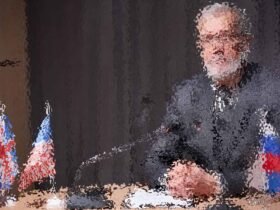
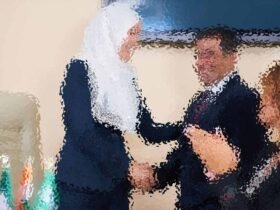
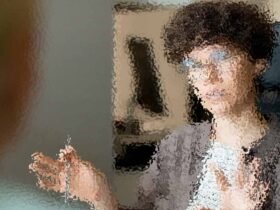

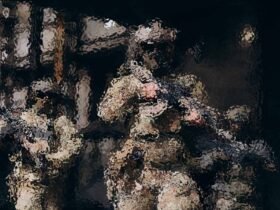
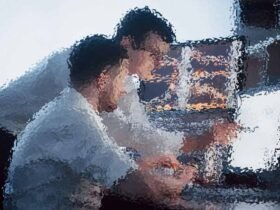
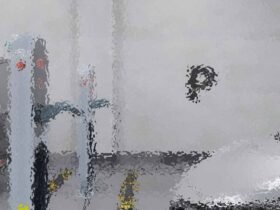


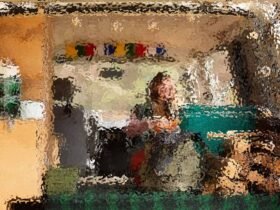



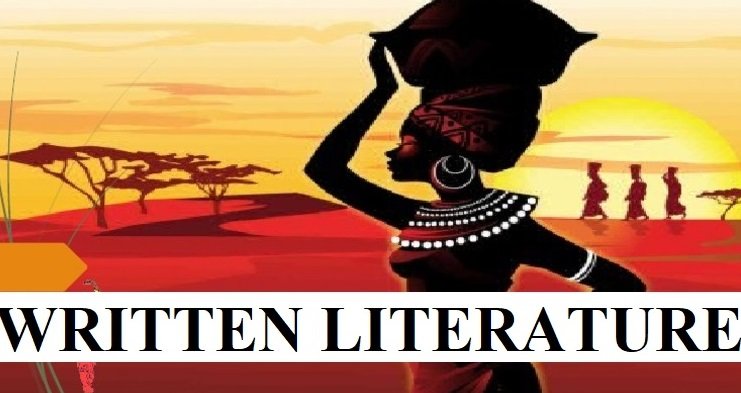
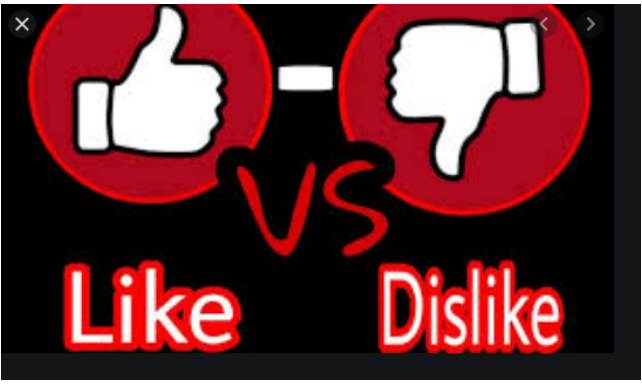



Leave a Reply